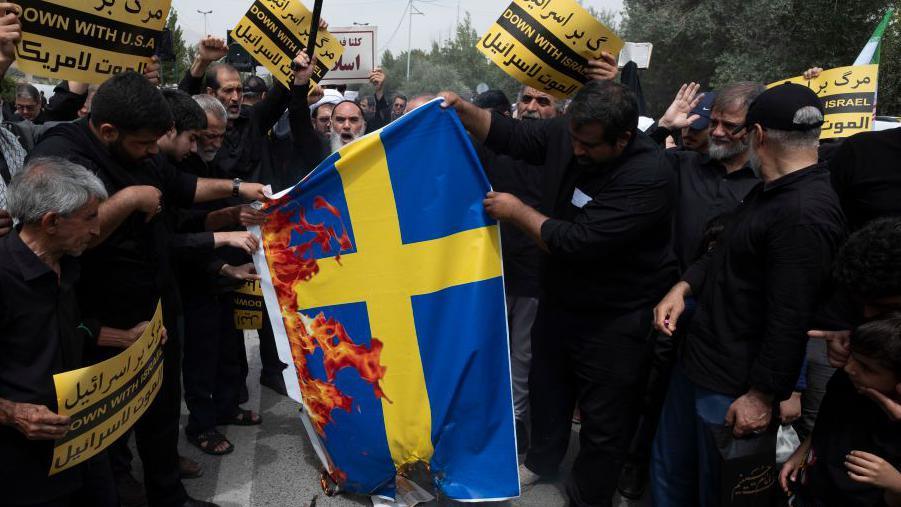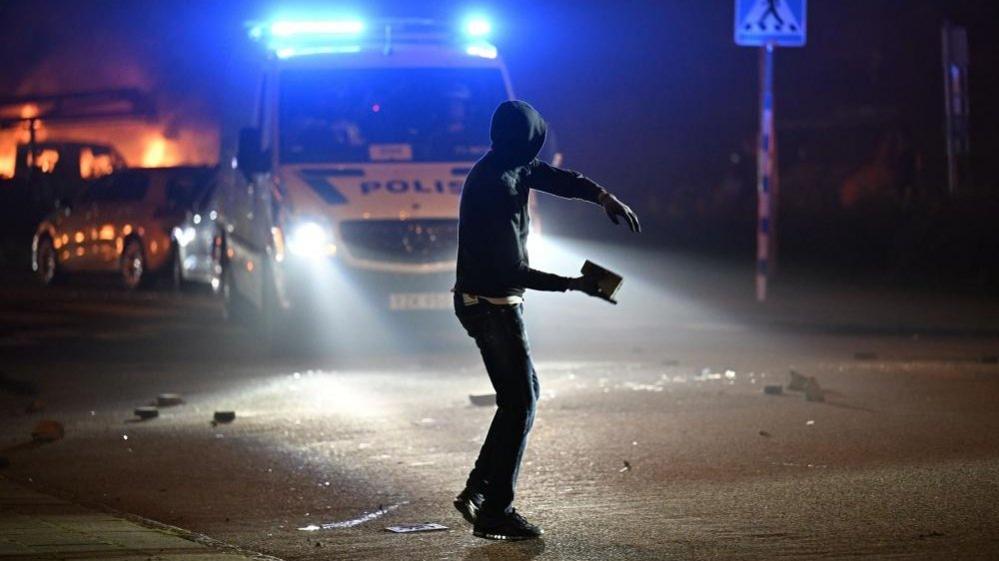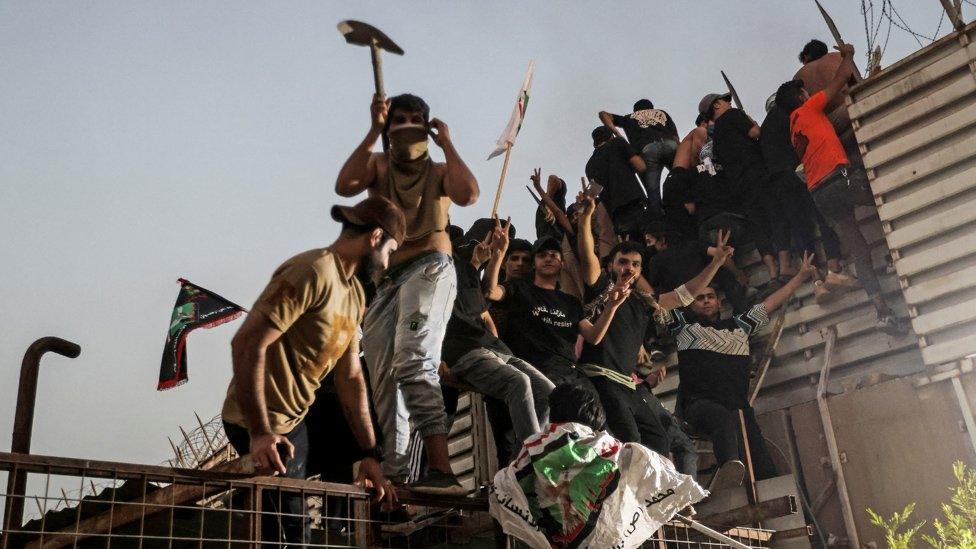Sweden blames Iran for cyber-attack after Quran burnings

Iranian worshippers reacted angrily to the burning of the Quran in Sweden
- Published
Sweden's security service Sapo has accused Iranian intelligence of hacking into a text messaging service to send 15,000 messages to Swedes.
Sapo said the data breach in summer last year involved SMS messages calling for "revenge against Quran-burners", after several anti-Islam activists set fire to copies of the Islamic holy book.
Iran's embassy in Stockholm has rejected the accusations, calling them "baseless" and harmful to the two countries' relations.
But Sweden says investigators found a cyber group called Anzu, acting for Iran's Revolutionary Guards (IRGC), that had sought to create division in society and paint Sweden as an Islamophobic country.
Sweden's government condemned the Quran burnings at the time and police tried to ban them, but they were allowed by the courts under freedom of expression laws.
The incidents led to outrage in several Muslim-majority countries, and Sweden's embassy in Iraq was set alight by protesters.
Last month, Swedish prosecutors charged an Iraqi activist and an accomplice with incitement against an ethnic group in connection with the book-burnings. Both men deny wrongdoing.
According to a preliminary investigation led by prosecutors, the Anzu group were said to have hacked into a Swedish company's SMS-service and taken over passwords, usernames and other tools at the end of July 2023, before sending a message to private individuals on 1 August that "those who insulted the Quran must be punished for their work".
Fredrik Hallstrom of Sapo told the Dagens Nyheter website that a number of people involved in the operation were linked to the Revolutionary Guards and that the text messages had partially succeeded in adding further fuel to the threat against Sweden.
Prosecutor Mats Ljungqvist said that investigators had succeeded in identifying the Iranian hackers' identities, but that there was no way they could be extradited and their preliminary inquiry had been shelved.
The security service warned that foreign powers such as Iran were seizing on opportunities to create division and bolster their own regimes.
Justice Minister Gunnar Strommer said in a statement that it was very serious that a state actor such as Iran was aiming to "destabilise Sweden or increase polarisation in our country".
This is not the first time that Sweden's security service has accused Iran's government of carrying out hostile acts on its territory.
Last May Sapo said Tehran had used criminal networks in Sweden to carry out violent acts against other states, groups or individuals in Sweden that Iran considered a threat.
It identified Iran, alongside Russia and China, as posing the greatest security threats to Sweden, external.
- Published27 July 2023

- Published4 September 2023

- Published21 July 2023
